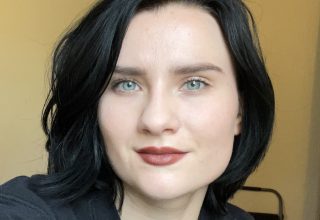Improving lives through health
Author: Stacey Maifeld
Author: Stacey Maifeld
Courtney Schill’s enthusiasm for her future career is, well, infectious. After considering a few different paths while at Iowa State, she plans to enter public health and use her dual degrees in anthropology and biology to make a positive impact.
Schill (’21 anthropology, biology) was recently accepted to Johns Hopkins University Bloomberg School of Public Health—the nation’s top-ranked public health graduate school—and will enter its molecular microbiology and immunology program next fall.
“Like a lot of young people, I have the genuine desire to spend my life making the world a better place than I found it,” she said. “A career dedicated to controlling infectious diseases in vulnerable populations really spoke to my intellectual strengths and interests.”

Given current events, it would be easy to assume Schill’s career interests arose from the COVID-19 pandemic. But her inspiration comes from an earlier time—about 600 years ago.
As a summer undergraduate research assistant at Cerro de Teúl, an archaeological site in Mexico, Schill worked on a project surveying the health of the people who lived there centuries ago. While studying ancient burial remains, she was intrigued that, in rare occurrences, some individuals showed signs of past bacterial infections.
“Bacteria and viruses in the archaeological record are tricky,” she said. “You only ever see a small fraction of the infections that actually occur in a population because most will not damage bone. I was fascinated by the thought that even after centuries of progress in medicine and technology, we still come down with the same infections and illnesses that plagued our ancestors.
“Eventually, I turned my attention to the modern era and thought, ‘What can I do to improve the lives of people living today?’ And so, my interest in public health was born.”
A native of Marion, Iowa, Schill arrived at Iowa State convinced that she would become a linguist. As she grew more interested in studying the human experience, she turned her focus to anthropology. Then during her junior year, she discovered public health as a career option.
“A major is not a life sentence,” she said. “You can always, always change your mind and switch majors if you discover that a career path isn’t right for you. Eventually, I found that studying infectious disease was a really interesting way to look at the intersection of human behavior and biology, which led me to pursue a dual degree in anthropology and biology.”
The liberal arts and sciences perspective that she gained through two diverse majors, as well as minors in Spanish and French, expanded her view of the world, she said.
“It can be easy to get caught up in a way of thinking and to disregard the ideas of people who come to different conclusions,” she said. “I feel a lot more prepared to approach a difficult topic with more thoughtfulness and empathy than I might have if I hadn’t been exposed to the vastly different worlds of anthropology and biology.
“Public health is different from medicine in that it’s focused on large-scale systems that contribute to trends in health rather than the health of an individual, and I think anthropology is better suited to this way of thinking than people may realize. Nothing happens in a vacuum, so we can gain insight into the ways that disease move through populations by understanding human behavior, and vice versa.”
Even with her unique academic background and multiple research trips to Mexico, for which she received the LAS Dean’s High Impact Award for Undergraduate Research, Schill was a bit hesitant to set her sights on highly-ranked graduate programs. Her Iowa State faculty gave her the nudge of confidence she needed.
“I feel so incredibly fortunate to have had a handful of professors who have been so firmly in my corner, even as I went through the crisis of several career goal shifts in a few short years,” she said. “One professor, who has been a research mentor and prolific recommendation writer for me during my time at ISU, encouraged me apply to more competitive programs, even when I thought there was no way I would make the cut. Without his constant affirmations of my abilities, I don’t think I would have even attempted applying to Johns Hopkins, and so for that I’m eternally grateful.”
Inspired by the past, Schill now hopes to improve futures—and address the health equity disparities many communities face.
“There’s no shortage of need for people in public health, because health is a constant and ever-changing concern,” she said. “From public policymakers in government, to epidemiologists in the field, and even down to us humble infectious disease researchers in the lab, everything we do in public health has the power to improve the lives of every person, present and future.”